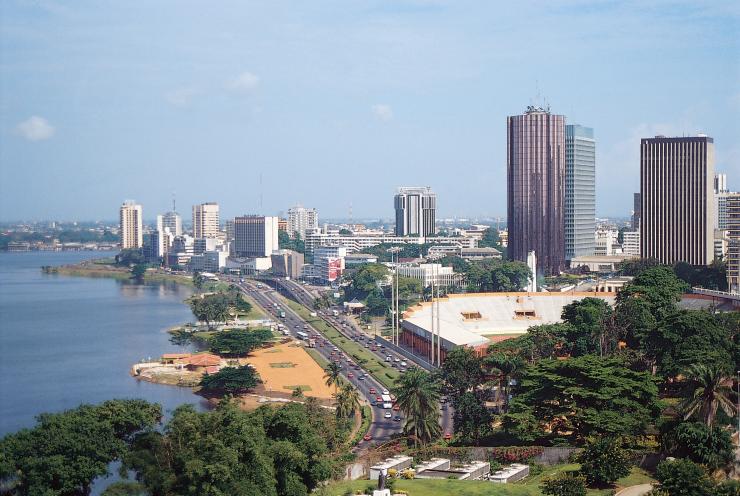Ivory Coast and France.

The prolonged phase of unrest reduced the influence of Ivory Coast on the international scene. During the Houphouet-Boigny era the Ivorian president was a powerbroker in the region.
He was considered a pillar of Francafrique, the network created by France to control her former colonies in Africa and therefore to play a prominent role on the African scene. Houphouet-Boigny, for good or bad, thanks to his personal abilities and the means he had could influence the political life of the neighbouring countries. After 1993 Cote d’Ivoire remained a leading country in West Africa, due mainly to its economy that kept on functioning and, on some occasions, growing the internal conflicts notwithstanding. But foreign leader, such as former Burkina Faso president Blaise Compaore, had the possibility to interfere in the internal matters of Ivory Coast first of all supporting one of the factions (in his case the northern rebel group) during the civil wars.

Ivory Coast under Ouattara is one of the few remaining allies for France, together with Senegal and Chad.
One of the causes of the gradual loss of power of France in Africa is the absence of credible leaders linked to Paris that could act as a transmission belt and implement France’s decision in the region. But the major cause of this crisis for France is the lack of means to act as a world power, linked with an uncertainty about how to play a role on the global scene. To sum up, the French leadership is loosely speaking divided between those who think Paris must act autonomously and go on with some sort of Francafrique framework (and therefore intervene in Africa to remain a world power) and those who support a deeper integration with Western countries (EU and NATO).
Due to these reasons, France has been losing ground in West Africa for years. Countries such as China, Turkey and (on a smaller scale) United Kingdom have created strong relations with those countries at the expenses of France. Recently the rivalry between France and Russia gained media attention. In the latest years Moscow entered the scene in countries such as Central African Republic, Mali and Burkina Faso with an explicit anti-French stance. A propaganda war between Paris and Moscow is ongoing in Africa.
Russia is exploiting the anti-French sentiment widespread in West African countries that were French colonies and during the years have been subjected to the initiatives of Francafrique.

Russian Foreign Minister Sergei Lavrov. A propaganda war between Paris and Moscow is ongoing in Africa.
African populations do not forget that Paris supported autocratic regimes and influenced the economies of their countries through initiatives such as the CFA franc. Truth to be told, in terms of democracy the intervention of these new partners did not help the development of more inclusive institutions. This phenomenon at the moment translates more into a new support for local regimes that are (in some cases) autocracies than into a positive turning point for the populations. To put it bluntly, these countries risk to pass from being French colonies to being Russian or Chinese colonies.
In this scenario, Ivory Coast under Ouattara is one of the few remaining allies for France, together with Senegal and Chad. The African country still hosts French troops and is seeking support from Paris to empower its security forces. But the anti-French sentiment is present also in Cote d’Ivoire, especially between pro-Gbagbo supporters. They do not forget that Gbagbo was chased from power in 2011 with the help of French soldiers. A change of alliance for Cote d’Ivoire is not impossible, even under Ouattara. A massive plan of economic and/or military support from an external power could push the Ivorian leadership to a shift in the alliances. (Open Photo: Abidjan.Swm Archive)
(A.C.)



